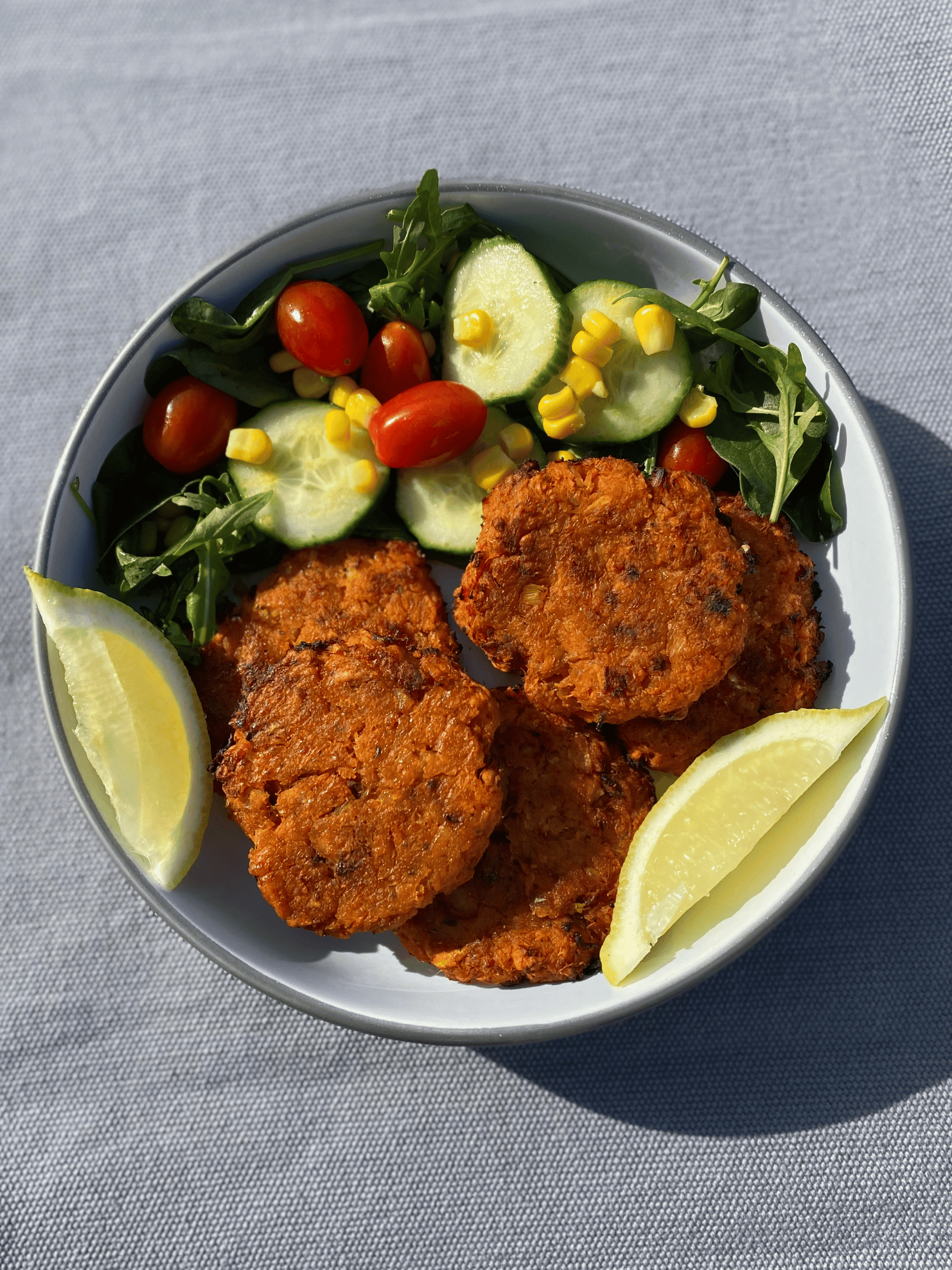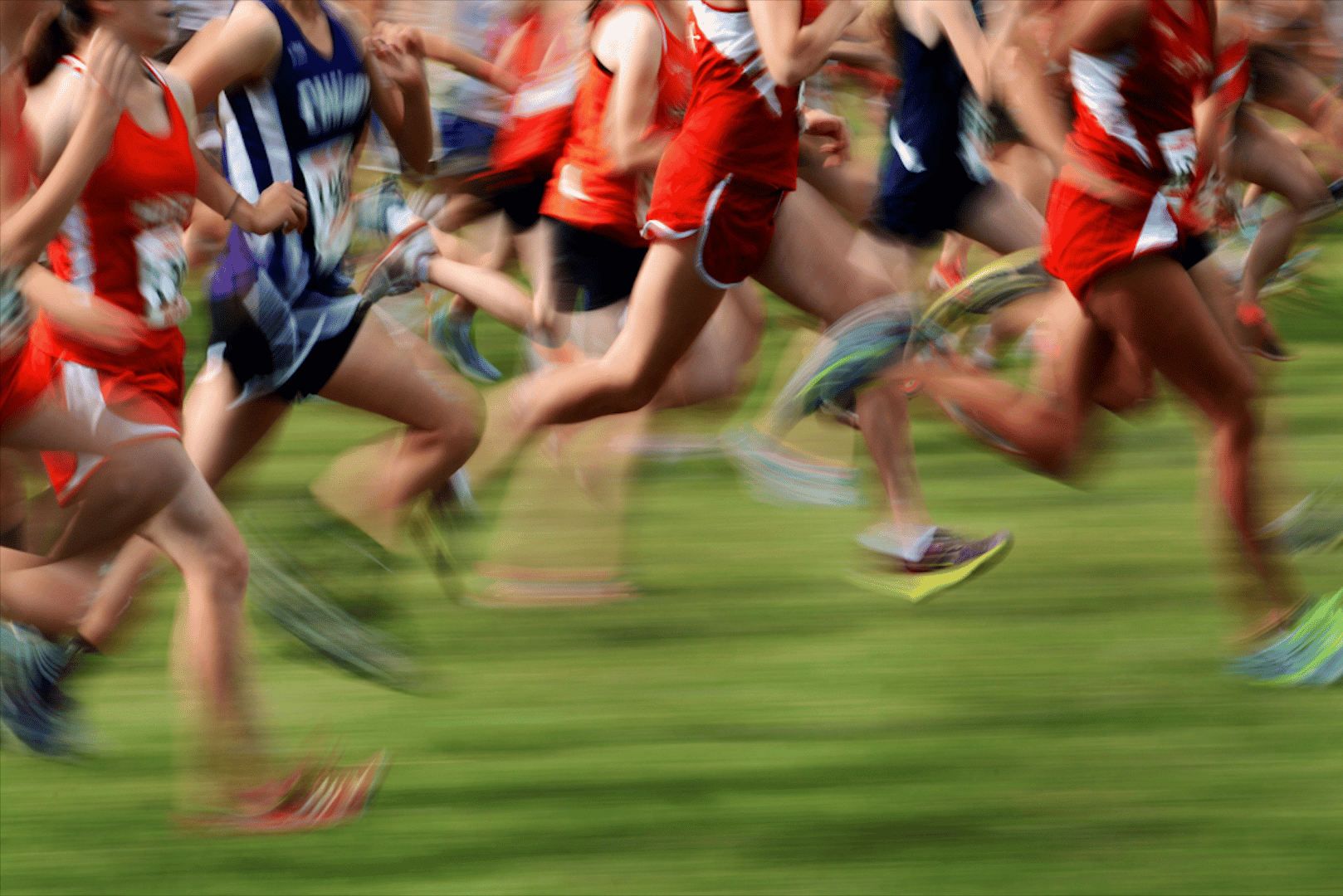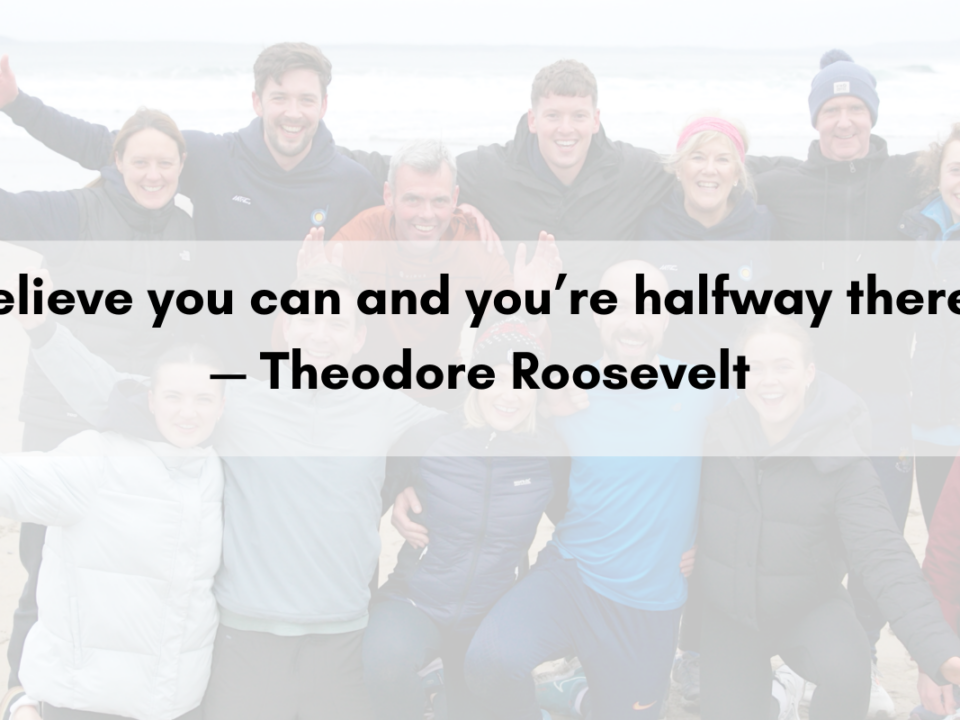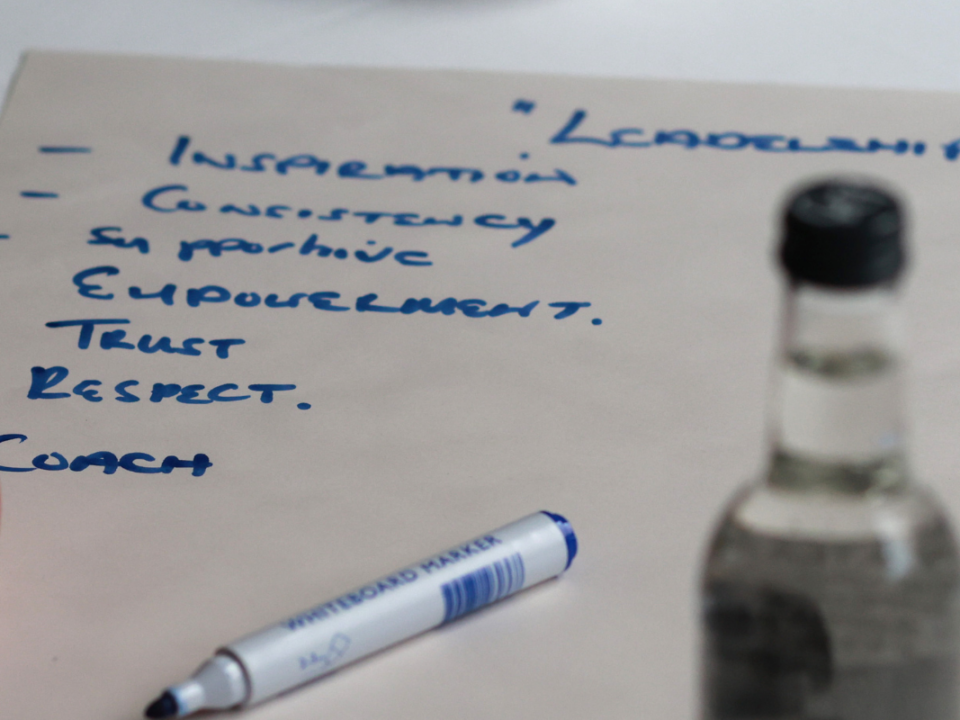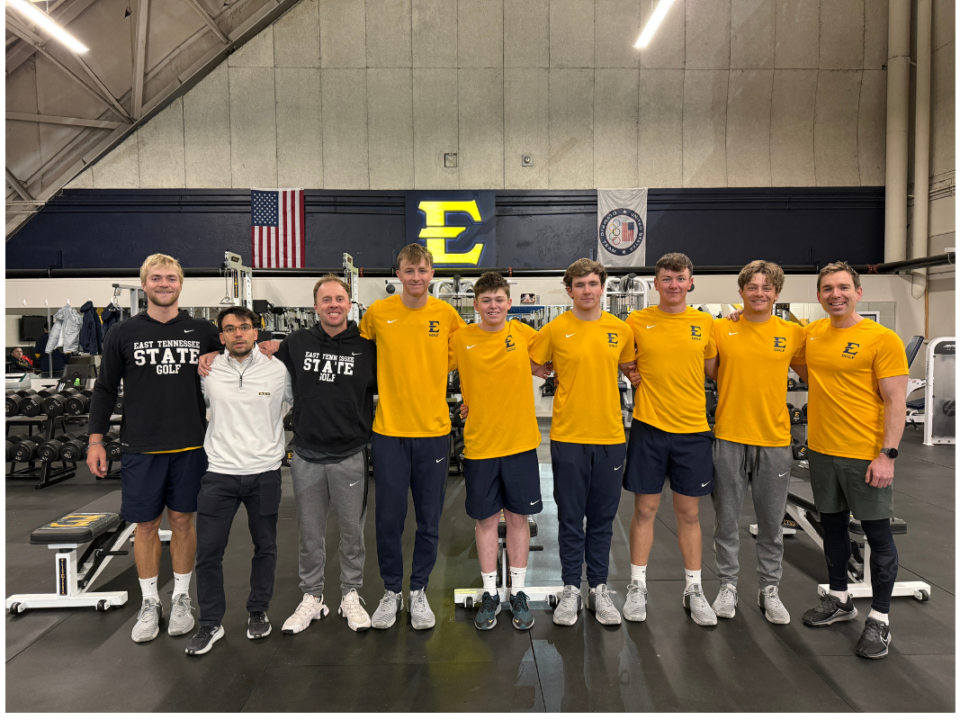Fuelling the Youth Athlete for Competition/ Gameday
Overview:
- The key nutritional considerations for fuelling your training/ competition
- Periodising your nutrition depending on your level of activity
- Competition/ match day nutrition
What should young athletes eat?
Nutrition is essential for athletes who want to perform week in, week out, maintain high performance and reduce the risk of injury. It is also essential to support growth and development during childhood and adolescence. As parents or young athletes there can be a lot of confusion when it comes to fuelling for exercise- what to eat, how much to eat and when to eat? As discussed in Part 1 of this series, the most important aspect of nutrition for athletes is ensuring they are eating enough total calories to support everyday activity and their sports performance. The next most important thing to focus on is the type of foods eaten around training/ competition. When participating in high-intensity exercise (e.g: athletics, rugby, soccer, Gaelic, CrossFit) the most important thing to understand is that carbohydrates are king! Consuming a high carbohydrate diet has repeatedly been shown to improve exercise performance by limiting fatigue and maintaining energy levels.
Read more- Performance Nutrition Explained.

Good sources of carbohydrates include wholegrains, fruits, vegetables, potatoes, oats, pasta, rice and noodles.

How much carbohydrates do you need when exercising?
For athletes, the amount of carbohydrates needed will depend on the duration and intensity of the exercise in which they partake. As the intensity and duration of exercise increase, so does your need for carbohydrate foods.

Why?
You can think of carbohydrates as the fuel you put in a car. The longer the journey the more fuel you are going to need in the tank. Your carbohydrate needs are similar in that the more exercise you do at high intensity, the more energy you are going to use up in the form of carbohydrates. Therefore, on competition/ match days your need for carbohydrates is going to be far greater than that of a rest day. One of the most frequent things we see as nutrition practitioners is that athletes fail to consume enough carbohydrates daily to support their performance. This can be overcome by good meal planning and having regular meals and snacks with a source of carbohydrates within each meal.
It is essential for young athletes who train twice per day (For example; in school and then training in the evening) to consume a diet that is high in carbohydrates as they are going to be continuously depleting their stores in the body.
When an athlete does not consume enough carbohydrates they might experience:

Download your free carbohydrate resource here.
The athlete’s plate is a tool you can use to adjust your eating according to the physical demands of your sport. They are an excellent visual representation of what your plate should look like at each of your meals according to your exercise intensity.
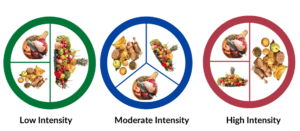
Low intensity (E.g: Rest day): Your plate can look like, ¼ protein, ¼ carbohydrates, ½ fruit/veg.
Moderate intensity (E.g: Training day): 1/3 carbs, 1/3 protein, 1/3 fruit/veg
High-intensity (E.g: Competition/ Match day): ½ carbs, ¼ protein, ¼ fruit/veg.
Check out our recipe page where you can filter meals according to activity type: Rest day– Exercise day– Intensive Exercise day.
Fuelling for Competition/ Gameday
What should young athletes eat before game day or competition?
As previously mentioned, carbohydrates are the primary source of energy/fuel the body relies on during high-intensity exercise.
Here is the catch!
Carbohydrate stores within the body (known as ‘glycogen’ within the muscle tissue and liver) are relatively limited in supply. When your carbohydrate stores are adequately filled they can support 80-90minutes of high-intensity exercise. If you have ever felt you have ‘hit the wall’ or your intensity dropped off earlier than expected, this could be due to not having enough carbohydrates stored in the body to support your performance.

Planning and preparation of appropriate carbohydrate meals is, therefore, an essential part of an athlete’s routine in preparation for games/competitions. The reason is, that when we eat carbohydrate foods it takes some time for them to go through our digestive system and find their way into our muscles and liver. That process can take hours, certainly not seconds or minutes.
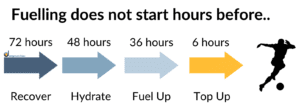
Therefore, it’s not about consuming the fuel immediately before it’s needed. Fuelling up with carbohydrate meals should begin in the 24 to 36 hours before your match/ competition to make sure you have a sufficient amount of carbs stored in your system to support the best performance. The process of fuelling up is commonly known as ‘carbohydrate loading’. This means having a number of carbohydrate-rich meals in the lead-up to a match or competition. A simple way of looking at it would be to add two extra carbohydrate meals on top of your typical food intake (usually six meals).
For example, two extra meals could be (i) a bowl of porridge with some chopped banana and (ii) a fruit smoothie with honey.
Athlete’s timeline – 1 day out from competition/ match.
 Blueberry & Coconut Porridge – Shredded Nut Granola – One- Pot Chicken Pesto Pasta – Berry Smoothie – Prawn Curry – Blueberry Banana Bread
Blueberry & Coconut Porridge – Shredded Nut Granola – One- Pot Chicken Pesto Pasta – Berry Smoothie – Prawn Curry – Blueberry Banana Bread
Click here for simple ways to add extra carbohydrates to your current meals.
Competition/ Game day:
On the day of the game/ competition, the majority of your fuelling should already be taken care of, and it should be a matter of topping up your fuel stores with lighter, easy-to-digest meals. Don’t forget about the importance of staying hydrated. You can monitor your hydration by the colour of your pee. It should be a pale yellow straw colour.
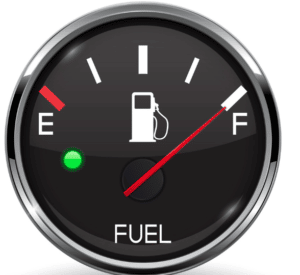
Competition day menu considerations:
- Low in fibre (avoid wholegrains, brown pasta, rice, noodles)
- Low in fat ( to avoid any stomach discomfort)
- Have a plan using familiar foods (don’t try any new foods on game day).
Competition timeline:
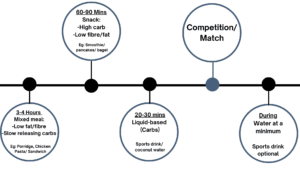
If your game is in the afternoon, you should get up early and start your day’s fuelling by having a medium to large breakfast based on carbohydrate foods. The meals should be low in fat, low in fibre and contain a slow-digesting source of carbohydrates – a bowl of porridge with fruit and honey fits nicely here.
If the game/ competition is in the afternoon, your breakfast should be your largest meal. Your stomach should be more or less empty come throw-in/ event, and for this reason, your last meal should be 3 to 4 hours before the game. The meal should be easy to digest, so fat, lots of protein and high fibre foods like vegetables should be limited. Pasta and chicken are common choices but rice, noodles, potatoes and even something like pancakes can also work well.

Click here for the recipes above!
It has become common practice for athletes to consume jellies, energy drinks, and high-energy snacks like Jaffa Cakes in the hours immediately prior to a game, but if carbohydrate stores have been filled through appropriate carbohydrate loading and the pre-match meals, this is not necessary. Nonetheless, if an athlete feels hungry or habitually consumes a specific light snack like two Jaffa Cakes, and feels better by having it in the 1 to 2 hours before the game, then that is perfectly fine.
What should you consume at halftime or during an event?
If your exercise lasts 60minutes or less water is sufficient. During the match or competition, if possible try to take on 150mls of fluid every 15-20 minutes. This is typically 2-3 mouthfuls. If the event lasts greater than 60minutes consuming some simple carbohydrates is beneficial: for example; a couple of mouthfuls of a sports drink, 4-5 jellies, 1-2 Jaffa cakes, or ½ banana.
Check out our very own sports drink.
Summary:
- Carbohydrate is the primary fuel required by those exercising at high-intensity
- Your need for carbohydrates is dependent on the frequency and level of physical activity/ training.
- Your need for carbohydrates is lower on days when you are less active and higher on days you are more active.
- Fuelling for competition/ game day should begin 24-36 hours before the event to make sure you have enough carbohydrate stores in the body to last the duration of exercise
- Having a plan and practising your nutrition is key for competition day



